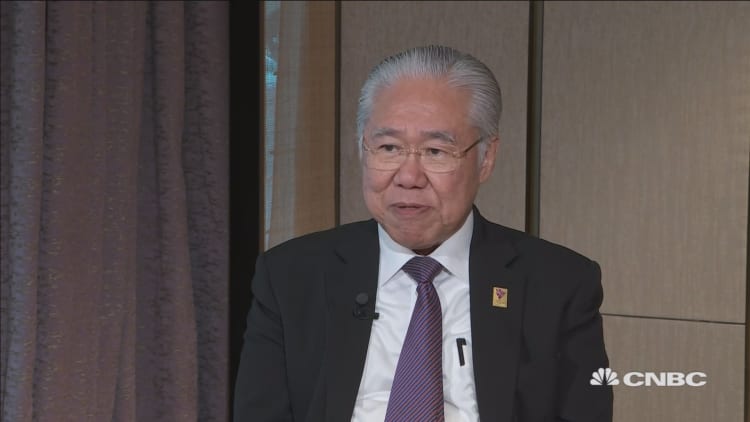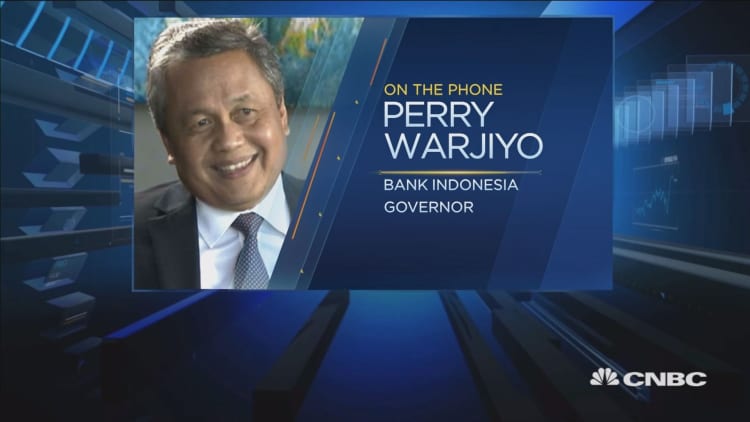
After hitting its weakest in nearly three years against the U.S. dollar, the Indonesian rupiah should stabilize from here on out, the country's trade minister told CNBC on Wednesday.
The rupiah is one of the worst-performing Asian currencies this year as investors flee emerging markets with current account and fiscal deficits. On Wednesday morning, one U.S. dollar bought around 14,640 rupiah — the Indonesian currency's weakest since October 2015 — compared to 13,565 rupiah at the start of 2018.
The U.S. Federal Reserve raising interest rates and some of President Donald Trump's policies have lifted the greenback, which attracted investors into the world's largest economy, Indonesian Trade Minister Enggartiasto Lukita told CNBC's Sri Jegarajah.
"This is good for the U.S. but it affects all countries," he said, adding that Indonesia will continue to use both monetary and fiscal policies to defend its currency from further weakening.
When the minister was asked whether he's confident those policies will stabilize the rupiah and prevent it from depreciating more, he responded: "Yes, I am."
Indonesian authorities have made saving the currency a priority. The country's central bank raised interest rates four times since May and has been tapping its foreign cash reserves to buy up the rupiah. The government also announced measures to take some pressure off its currency, including imposing tariffs on some imported goods that can be locally made.
The latter move aims to lower import demand, which reduces the need to sell the rupiah in exchange for foreign currencies. It will also help to contain Indonesia's current account deficit, a reason widely cited by many investors for taking their money out of the country.
"I don't think Indonesia is a target," the minister said when asked whether the rupiah was unfairly sold down by investors. He reiterated that the currency's depreciation is a "normal impact" of a general tightening in global monetary conditions.
And even with an election next year, Indonesian President Joko Widodo is still committed to cutting the country's deficits, said Enggartiasto. That's unlike other leaders who would typically increase public spending in a big way to shore up votes, he added.
The president, popularly known as Jokowi, said earlier this month that he aims to reduce the country's budget deficit to 1.84 percent of gross domestic product in 2019 from around 2.12 percent this year — even with an increase in spending.
Some analysts are still doubtful
Still, a number of analysts have continued to question Indonesia's ability to raise revenue to fund its higher expenditure.
"Despite narrowing budget deficit, given Indonesia's track record of revenue underperformance, it may be premature to conclude a clear improving trend in revenue collection," Zhu Huani, an economist at Mizuho, wrote in a Wednesday note.
That sentiment was shared by ratings agency Moody's, which said Indonesia's debt situation will not improve if its revenue targets are not met.
The country, the largest economy in Southeast Asia, has around 41 percent of government debt denominated in foreign currencies, Moody's noted. That means, if Indonesia can't convince the investment community that it has its finances in check, then the rupiah is at risk of depreciating further — which makes those debts more expensive to repay.
"As a result, supporting market confidence via fiscal discipline is crucial for Indonesia's credit profile," Moody's said in a recent report.
WATCH: Bank Indonesia has to 'control the uncertainty'



